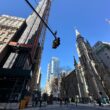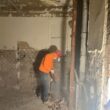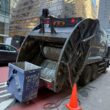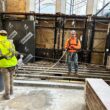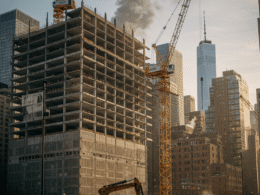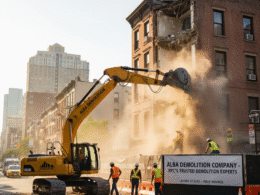In New York City, “hard work” is more than a phrase—it’s a badge of honor. From Wall Street traders working long hours to small business owners hustling daily, the city thrives on grit and determination. But in the world of demolition and construction, hard work carries a different weight. It means laboring in dangerous conditions, building (or dismantling) structures that shape the skyline, and doing it all with precision and endurance. Among the professionals who embody this spirit, Andrew Horan Alba stands out.
For Alba, hard work isn’t just about putting in hours—it’s about setting new standards of strength, resilience, and responsibility in one of the toughest industries in New York. This blog explores how he’s redefining what hard work means in the demolition sector and why his approach has made a lasting impact on workers, clients, and communities.
The Old Image of Hard Work in Construction
Traditionally, hard work in construction was measured in physical terms:
- Who could lift the heaviest materials.
- Who could last the longest on a shift.
- Who could withstand grueling conditions without stopping.
While strength and endurance still matter, Alba has shown that hard work in NYC’s construction industry is no longer just about muscle—it’s about mindset, ethics, and innovation.
Andrew Horan Alba’s Definition of Hard Work
Alba believes hard work means:
- Putting safety before speed. True hard work is not rushing through tasks but taking time to ensure they’re done without risks.
- Training the workforce. Hard work involves mentoring crews, giving them the knowledge to succeed long-term.
- Balancing efficiency and care. It’s not about cutting corners but finding smarter methods.
- Taking responsibility. When things go wrong, leaders step up instead of shifting blame.
This definition shifts the narrative—turning hard work into a holistic blend of physical effort, mental discipline, and leadership.
Alba’s Crew: The Embodiment of Hard Work
To see how Alba redefines hard work, you only need to look at his crew. His team reflects values such as:
- Dedication: Crews often work in challenging conditions but maintain morale.
- Skill over force: Alba trains workers to rely on expertise, not brute strength.
- Team spirit: Hard work means supporting one another instead of competing to exhaustion.
This culture has built a workforce respected throughout NYC’s demolition industry.
Technology: The Smarter Side of Hard Work
Many assume technology makes work “easier,” but Alba sees it differently. For him, technology is a tool that elevates what hard work means.
- Drones reduce risks by surveying unstable sites.
- Robotic equipment handles dangerous demolition tasks.
- Project management software improves efficiency without sacrificing safety.
By integrating technology, Alba proves that hard work today is about working smarter, not just harder.
Case Study: The Brooklyn Warehouse Project
A prime example of Alba’s philosophy was a large-scale demolition of an aging warehouse in Brooklyn.
Challenges:
- Tight deadline.
- Hazardous materials in the structure.
- Busy neighborhood with constant pedestrian traffic.
Traditional Hard Work Approach: Push the crew longer hours, power through risks, and sacrifice community peace for speed.
Alba’s Approach:
- Scheduled rotating shifts to prevent worker fatigue.
- Used drones and sensors to monitor structural risks.
- Installed dust and noise barriers to protect the public.
- Held daily team briefings to address safety and morale.
Outcome: The project finished ahead of schedule, with zero incidents, satisfied clients, and community praise.
This project demonstrated how Alba’s redefined hard work—blending strength, intelligence, and responsibility—creates superior results.
Hard Work Beyond the Job Site
Alba’s concept of hard work extends outside the construction zone. He invests time in:
- Mentoring young workers. Many who join his crews start with little experience. His training gives them valuable lifelong skills.
- Community engagement. He ensures projects protect neighborhoods instead of disrupting them.
- Sustainability efforts. Recycling materials and reducing environmental damage are part of his ethic of responsibility.
These commitments show that true hard work also means serving others, not just yourself.
Changing Worker Mindsets
Perhaps Alba’s greatest impact has been on how workers view themselves. Many enter the demolition field thinking hard work only means laboring until exhaustion. Under Alba’s leadership, they learn:
- It’s not weakness to ask for safer tools—it’s smart.
- Knowledge is just as valuable as muscle.
- Rest, recovery, and training are part of being a hard worker.
This shift in mindset has created healthier, more motivated crews that carry pride in their work.
What NYC Learns From Alba’s Approach
New York is a city that values hustle, but Alba shows hustle doesn’t mean recklessness. His redefinition of hard work teaches NYC:
- Excellence comes from balance. Working harder and smarter together leads to sustainable success.
- Workers are assets, not expendables. Protecting them is the real test of leadership.
- Community trust matters. Hard work isn’t just what happens inside the construction fence—it extends to the public.
The Future of Hard Work in NYC Construction
As NYC continues to grow, demolition and construction projects will only get more complex. Future hard work will involve:
- Adopting AI-driven planning for safer and faster operations.
- Expanding worker wellness programs for mental and physical health.
- Green construction and demolition practices that balance progress with sustainability.
Alba is already preparing his workforce for this future, proving once again that he is ahead of the curve when it comes to redefining the meaning of effort in the industry.
External References
Conclusion
In a city where “hard work” is often equated with long hours and relentless effort, Andrew Horan Alba brings a fresh perspective. For him, true hard work is not just about strength—it’s about responsibility, leadership, intelligence, and care.
Through his dedication to safety, technology, worker training, and community respect, Alba demonstrates that the toughest job in NYC doesn’t just demand sweat—it demands vision and integrity.
By redefining what hard work means, he’s not only shaping safer job sites but also shaping the future of the construction and demolition industry in New York City.
